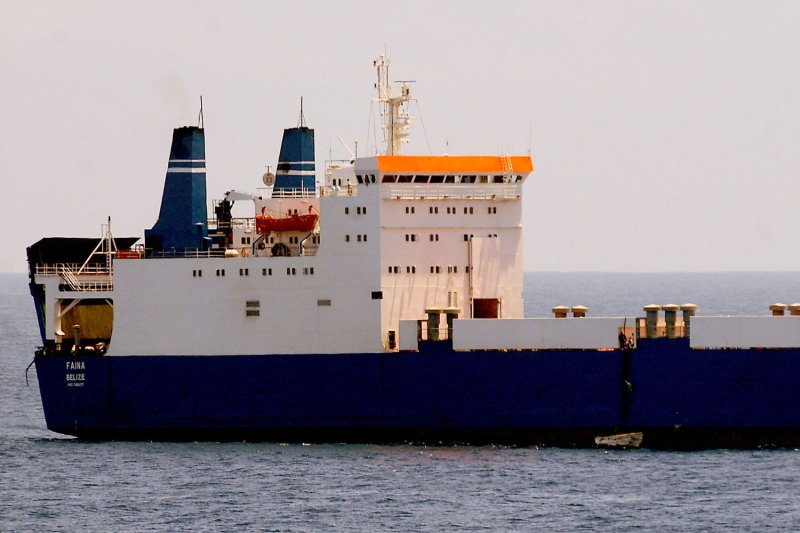A Baltic shipping association said it was committed to meeting U.S. steel demands, but added trade lanes may shift because of tariffs. File Photo by Jason Zalasky/U.S. Navy |
License Photo
July 11 (UPI) -- Shippers are committed to servicing U.S. demand for steel, including niche pipeline supplies, though it depends on price, a Baltic maritime association said.
"The global shipping industry is ready to service the U.S. demand for steel, be it pipelines or any other product," Peter Sand, the chief shipping analyst for international shipping association BIMCO, told UPI.
The U.S. Commerce Department in January concluded the amount of aluminum and steel imports threatened U.S. national security. The government in June imposed a 25 percent tariff on steel imports and a 10 percent tariff on aluminum imports.
The U.S. Census Bureau found 40 percent of total steel imports last year came from Canada, Mexico and the European Union, with Canada accounting for the bulk of the deliveries with around 9 million tons. After tariffs were announced earlier this year, the Canadian Steel Producers Association said it was dismayed.
The Baltic and International Maritime Council, BIMCO, estimated about 30 percent of total U.S. steel demand was satisfied by imports. Only a handful of niche suppliers, however, supply the pipelines as most domestic producers focus on sectors like automotive.
"It's all going to be a matter of price," Sand added. "Changes to landed price of course depends of the tariff as well as the original price of the good set by the exporter."
BIMCO, on the prospects for a broader trade war, said it expects to see a change in the trade lanes related to oil tankers and gas shippers. The industry most exposed to risk would be U.S. crude oil exports, it said. As the U.S. government increased the pressure on Beijing on Wednesday, BIMCO noted that China was responsible for 25 percent of total U.S. seaborne crude oil exports by volume last year.
China, meanwhile, has proposed a reciprocal response to U.S. trade pressures by targeting U.S. crude oil exports. Sandy Fielden, the director for oil and products research at Morningstar, said in response to emailed questions that the shift in trade could impact the price of oil.
"If U.S. crude doesn't flow to China it will flow elsewhere, probably at a discount," he said. "That means a wider Brent/WTI spread."
The spread refers to the difference between the price for Brent crude oil and West Texas Intermediate, the U.S. benchmark for the price of oil.
WTI has traded at a discount to Brent because, while the United States continues to accelerate as a producer, much of the oil remains landlocked because of a lack of pipeline capacity. Commenting in 2015 as the U.S. government lifted a ban on crude oil exports, economists at CME Group expected the spread to narrow because U.S. crude could be more competitive on the open market. A cheaper WTI, however, makes it more attractive in some markets.
WTI was trading at a $3.50 per barrel discount to Brent on Wednesday. The discount swelled to more than $10 in early June on concerns that U.S. oil production was straining existing pipeline capacity.
Ed Longanecker, the president of the Texas Independent Producers & Royalty Owners Association, told UPI some companies were stocking up on pipe, while others were discussing a possible cut back on future projects.
"The U.S. technically imports steel from more than 100 countries, but three quarters of that comes from about ten," he said. "Domestic suppliers will certainly seek to capitalize on the tariffs, but the industry is not capable of supplying the quantity or specialty material needed by many sectors, nor can the oil and gas industry simply absorb the higher cost of sourcing domestically. "















